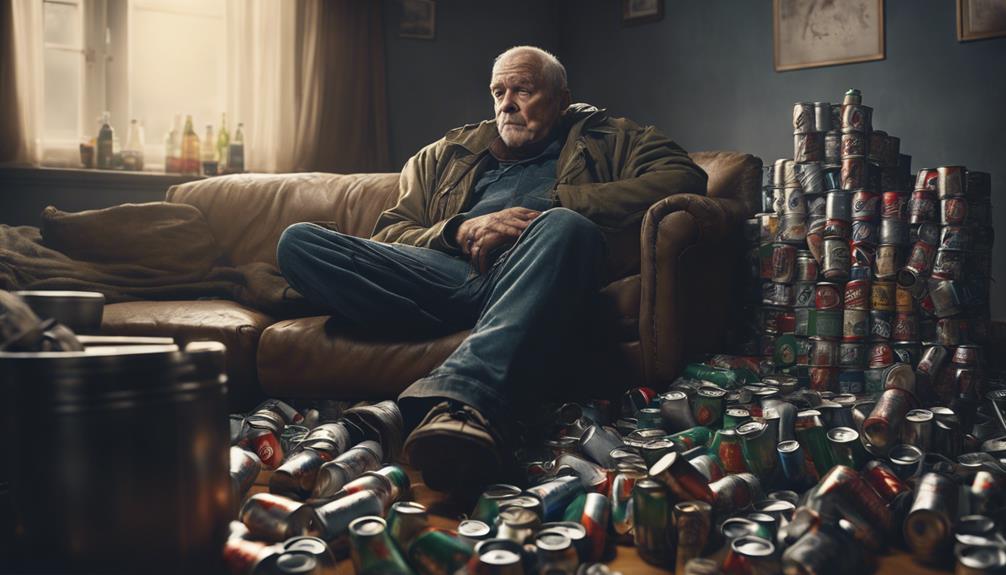You can pursue several treatment paths for sex addiction, including 12-step programs that focus on community support and spirituality, cognitive-behavioral therapy (CBT) that helps you identify and change harmful thought patterns, and group therapy that offers shared experiences and connection. Each approach suits different needs, and combining treatments often yields the best results. Exploring these options further can help you find a personalized plan to support your recovery journey.
Key Takeaways
- Multiple treatment options exist, including 12-step programs, CBT, and group therapy, each suited to different needs and preferences.
- 12-step programs emphasize spiritual growth and community support, fostering peer accountability.
- CBT focuses on changing thought patterns and behaviors through practical skills and therapist guidance.
- Group therapy offers shared experiences and reduces isolation, often integrating elements of other approaches.
- Personalization of treatment, often with professional input, enhances effectiveness and long-term recovery.

Sex addiction can profoundly impact your relationships, mental health, and overall well-being, but effective treatment options are available. When you’re ready to seek help, you’ll find several paths designed to address your specific needs. One of the most well-known approaches is the 12-step program, similar to Alcoholics Anonymous. This model emphasizes community support, accountability, and spiritual growth. Attending meetings regularly allows you to share your experiences, learn from others facing similar struggles, and develop a sense of connection that can be *essential* in recovery. The 12-step approach often encourages working with a sponsor—someone who’s been through similar issues—to guide you through the process. While some find this method empowering and motivating, others may feel uncomfortable with the spiritual aspect or the reliance on peer support. Nonetheless, many individuals experience significant improvements through consistent participation and commitment.
Cognitive-behavioral therapy (CBT) offers a different, more structured approach. It focuses on identifying and changing the thought patterns and behaviors that contribute to your addiction. During CBT sessions, you’ll work with a therapist to uncover underlying triggers—such as stress, loneliness, or boredom—that lead to compulsive sexual behavior. You’ll learn practical skills to manage urges, develop healthier coping mechanisms, and challenge distorted beliefs about sexuality and self-worth. This method is highly personalized and adaptable, making it effective for many people. It often involves homework assignments and skill-building exercises designed to reinforce progress outside of therapy sessions. If you prefer a more goal-oriented and evidence-based approach, CBT might be the right choice for you.
Group therapy is another valuable treatment option, offering a supportive environment where you can connect with others who understand your struggles firsthand. In group settings, you’ll share your experiences, hear others’ stories, and gain insights into common challenges. This shared experience can reduce feelings of shame and isolation, fostering a sense of community. Group therapy can be facilitated by a mental health professional and often incorporates elements of CBT, 12-step principles, or other therapeutic techniques. Participating in a group can boost your motivation, provide accountability, and help you develop healthier relationship patterns. Many find that combining individual therapy with group sessions enhances their recovery process, giving you both personalized attention and peer support. Ultimately, the best treatment path depends on your preferences, needs, and the severity of your addiction. Exploring these options with a mental health professional can help you craft a plan that offers hope, healing, and a path toward a healthier life.
Frequently Asked Questions
How Do I Know Which Treatment Is Right for Me?
You determine the right treatment by evaluating your specific needs and preferences. Reflect on what motivates you, your comfort level with support groups, and whether you prefer structured therapy or peer-led approaches. Consult a mental health professional who can evaluate your situation and recommend personalized options. It’s essential to find a treatment that resonates with you, feels manageable, and offers the support you need to recover effectively.
Can I Combine Different Therapy Approaches?
Yes, you can definitely combine different therapy approaches. Many treatment plans integrate methods like 12-step programs, cognitive-behavioral therapy, and group support to address various aspects of sex addiction. This personalized approach can improve your chances of recovery by tackling emotional, behavioral, and social factors simultaneously. Talk with your therapist about blending techniques to create a plan that best fits your needs and supports your long-term healing.
How Long Does Sex Addiction Treatment Typically Last?
Most treatments for sex addiction last between 3 to 12 months, depending on severity and individual progress. Interestingly, studies show that about 60% of people see significant improvements within the first six months. You might find that consistent therapy, support groups, and ongoing accountability can accelerate recovery. Remember, the journey varies for everyone, so stay committed and patient as you work toward healthier behaviors.
Are There Medications That Support Sex Addiction Recovery?
Yes, medications can support your sex addiction recovery. Doctors might prescribe antidepressants like SSRIs to reduce compulsive behaviors or medications that help manage underlying conditions such as anxiety or depression. These drugs don’t cure addiction but can lessen urges and improve your overall mental health. Always consult a healthcare professional to determine if medication is appropriate for your situation and to develop a detailed treatment plan tailored to your needs.
What Are the Success Rates for Each Treatment Path?
In the era of the roaring twenties, success rates vary widely. You might find approximately 40-60% success with structured programs, like 12-step or therapy. Medications can support recovery, but long-term success depends on your commitment and support system. Remember, progress is personal—staying dedicated and seeking ongoing help increases your chances of overcoming sex addiction. Keep in mind, persistence often beats perfection.
Conclusion
No matter which path you choose—12-step, CBT, or group—you’re charting a course through stormy seas toward calmer waters. Each offers a guiding lighthouse, illuminating your way out of the shadows. Remember, healing is a journey, not a sprint, and every step you take is a brushstroke on the canvas of your recovery. Trust the process, stay committed, and soon you’ll find yourself sailing toward a brighter, freer horizon.









